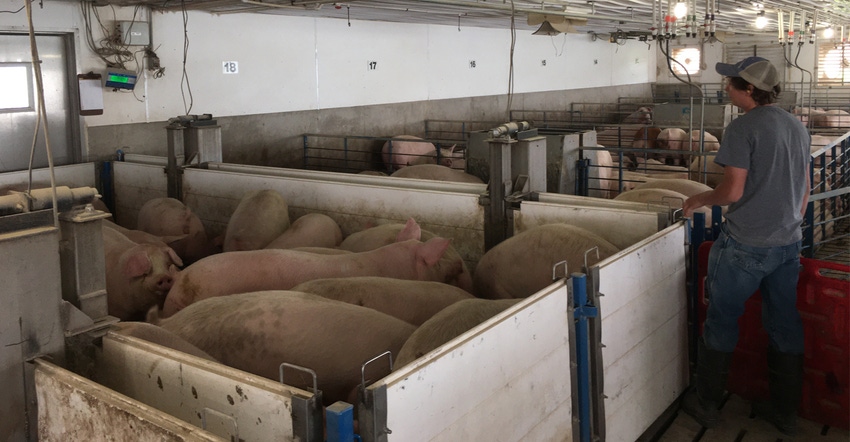May 13, 2020

Hog producers today need options to manage feed intake and weight gain. Packing plant closures and slowdowns caused by COVID-19 have strained the industry as market hogs are held on farms longer than expected. Swine nutritionists have come up with promising results from an ongoing trial at the Kent Nutrition Group Research Farm involving over 400 finishing pigs. For the nation’s pork producers, these results can provide viable feeding options until processors can receive pigs.
"We had pigs ready for market at the KNG Research Farm, but like most producers, we were suddenly faced with the unexpected shutdown of our local packing plant," says Jim Smith, KNG senior swine nutritionist. “We thought, ‘What better use of the situation than to investigate ways we can help our customers and the pork industry during this unprecedented market challenge?’”
Smith and Michael Edmonds, KNG vice president of swine and poultry nutrition, quickly teamed with industry partners to design a research trial to explore options for holding or reducing weight gain until pork processing space becomes available.
Options for holding hogs
“During our discussions, I remembered a 1987 swine research project where we created an amino acid imbalance,” Edmonds says. “The study results showed a significant decrease in growth caused by a decrease in feed intake when we added the amino acid DL-Methionine.”
Building on Edmonds’ past research, the team examined various levels of DL-Methionine in the diet. They quickly created a trial with six treatments using a standard ration as the control and other diets containing various levels of DL-Methionine in low protein or corn rations. The hogs were weighed at six days, showing a significant reduction in feed intake and little to no weight gain. From day six to 10, DL-Methionine levels were reduced to approximately 20% of the initial levels in the corn and low-protein diets. At the 10-day weigh-in, pigs had gained a modest five pounds per head with relatively low cost per pig per day.
Adjust rations
“The pork industry is facing unique marketing challenges now, and the beauty of intermediate data from this study is we have multiple options for diets to fit most situations,” Smith says. “Whether a producer needs to hold a 320-pound pig or slow down a 240-pound pig, we can adjust the levels of DL-Methionine to fit that operation.”
In this trial, various diets showed using high levels of DL-Methionine clearly created different patterns of growth, which should help swine producers manage their finishing hogs’ ending weights during the COVID-19 pandemic. The KNG trial will continue until pork processors have space to receive the pigs.
For pork producers who need to hold their pigs, Kent used these data to develop an easy-to-use, all-in-one, nutritional supplement, NexGen Hold-Pack. Contact Kent for information. Specific trial diets and results can be found at the article Evaluation of Amino Acid Imbalances in Reducing Growth Rate and Feed Intakes in Late Finishing Pigs.
Source: Kent, which is solely responsible for the information provided and is wholly owned by the source. Informa Business Media and all its subsidiaries are not responsible for any of the content in this information asset.
You May Also Like




